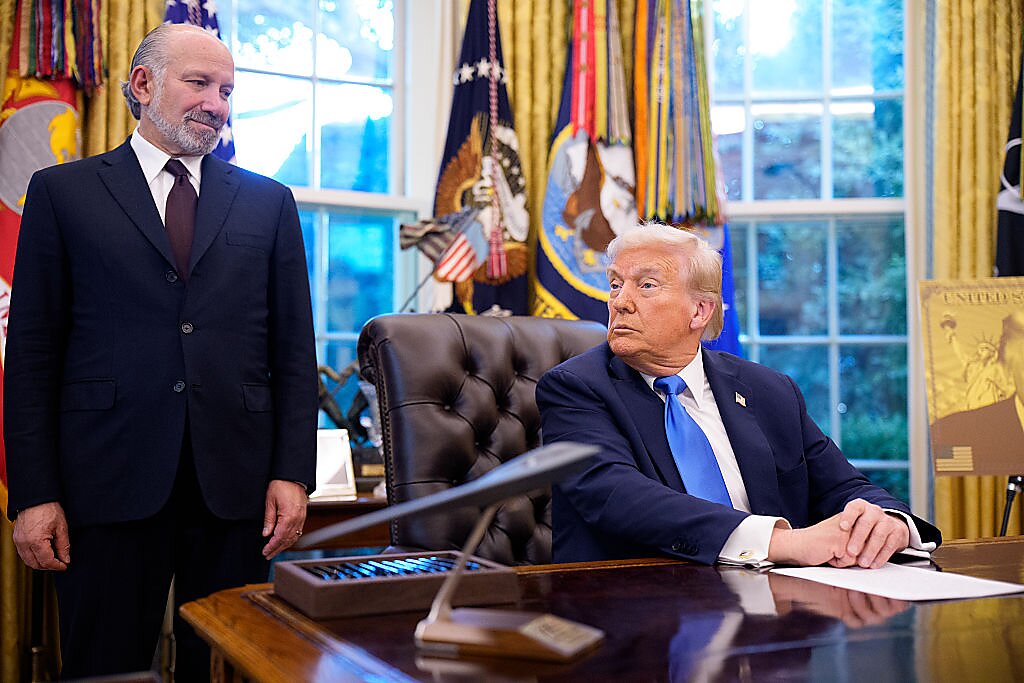Nicholas Anthony
Many people celebrated President Donald Trump’s executive order targeting “political debanking.” Yet, those same people seem to be silent now that the president created new pressures to effectively debank the left.
Ebrima Sanneh, a reporter for American Banker, broke the story as banks began to grapple with two seemingly conflicting executive orders. The first order came on August 7. It leaned heavily into the idea that banks have engaged in “unacceptable practices” by restricting access “on the basis of political or religious beliefs.” In doing so, Trump wrote that it is “the policy of the United States” that no one should be debanked for political beliefs.
The second order came on September 22. It was here that Antifa was officially designated as a “domestic terrorist organization.” A few days later, the White House then published a memo outlining how the Bank Secrecy Act should be used to “identify and disrupt financial networks that fund domestic terrorism and political violence … to ensure such activity is rooted out at the source.” By itself, this second order is a compliance nightmare.
People have done objectively bad things under the banner of Antifa. At the same time, however, Antifa appears to be more of an ideology than a formal organization. With that in mind, it is wholly unclear how banks are supposed to avoid Antifa. Should banks blacklist anyone who comes in wearing an Antifa pin? Should they review photos of protests to identify potential Antifa-aligned customers? Should onboarding documents include a questionnaire about a customer’s feelings about fascism?
Making matters worse, the designation resembles something out of the authoritarian’s playbook. Authoritarian governments around the world have labeled their opponents as “terrorists” to cut them off from the financial system. Félix Maradiaga experienced this when he was labeled a terrorist by the Nicaraguan government. His crime? Maradiaga announced that he was running for president against the long-standing incumbent, Daniel Ortega. Banks had no say in whether this designation was accurate. Once Maradiaga was labeled a terrorist, their hands were tied. And that brings us back to the current situation in the United States.
Banks are now caught between the two executive orders. Do they comply with the terrorist designation and shut down the accounts of customers who have associated themselves with Antifa? They could, but that would risk running afoul of the other executive order by debanking a customer for what could be described as political reasons.
Todd Baker, a fellow at Columbia University’s Richard Paul Richman Center, described the situation to American Banker: “The two directives are inherently self-contradictory, and any search for a coherent policy to reconcile the two is impossible.”
Impossible to reconcile as it may be, this case is illustrative for two primary reasons.
First, it shows how the focus on political debanking rests on a questionable premise. In addition to the president’s executive order, legislation such as the Fair Access to Banking Act and the Ensuring Fair Access to Banking Act attempts to go after political debanking. Yet, despite these attempts, it’s been exceedingly difficult to identify cases of true political discrimination. Instead, claims of political (and religious) debanking have rested on less-than-straightforward anecdotes.
Second, this case shows how governmental debanking is the more fundamental issue. Clear evidence of political discrimination may be hard to find, but the fact that this new debanking pressure came from the government is clear as day. It shows how the government has the power to decide, at the drop of a hat, who receives access and who doesn’t. The cryptocurrency industry faced similar pressure when the Federal Deposit Insurance Corporation told banks to stop facilitating cryptocurrency activity. Other industries experienced this pressure from the government under Operation Choke Point.
Make no mistake: Debanking is a problem. A better approach, however, would be to reform the Bank Secrecy Act, prohibit the regulation of reputational risk, and remove the confidentiality that has kept the public in the dark. Doing so would minimize unintended consequences, take well-established abuses off the table, and give the public much-needed transparency.


